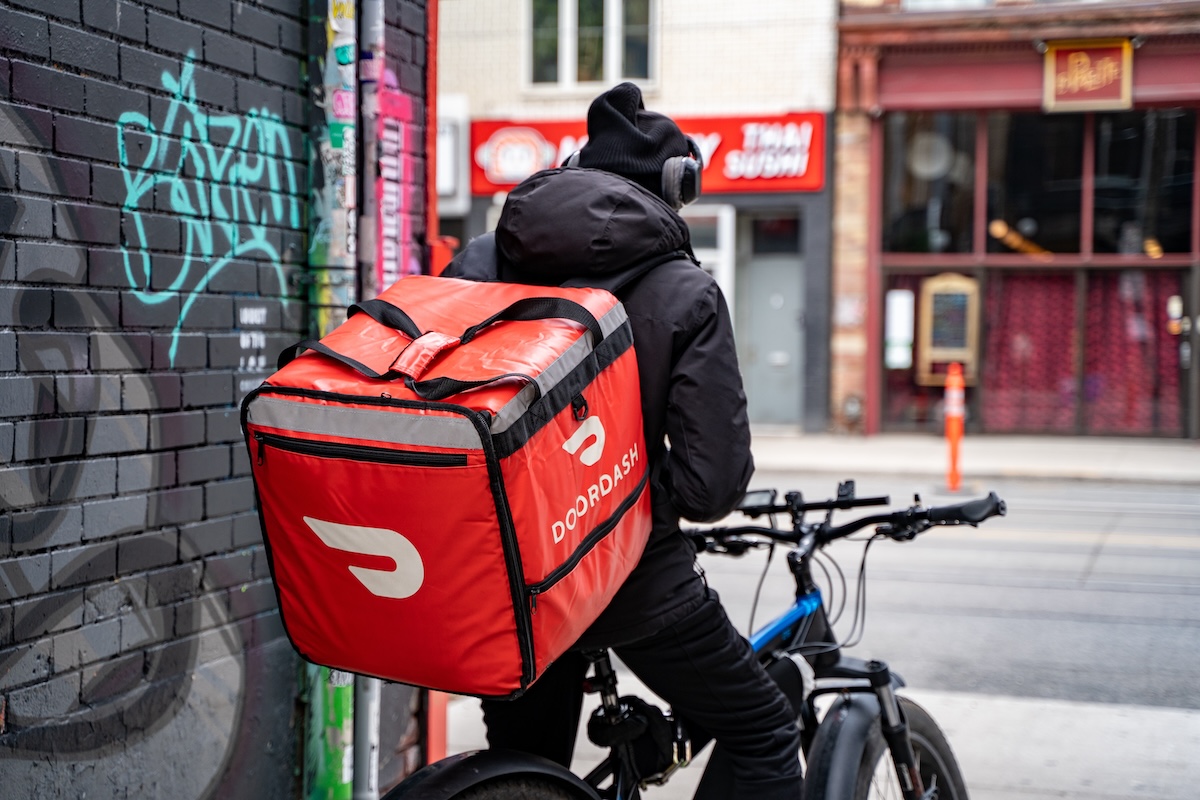
DoorDash (DASH), which is the largest food delivery company in the US by a significant margin, is putting even more pressure on its rivals.
The company announced last week that it has launched what it calls the first commercial autonomous delivery robot that will be able to navigate bike lanes, roads, sidewalks and driveways.
Called Dot and designed by DoorDash Labs, the company noted that it is one-tenth the size of a car and can reach speeds up to 20 mph.
DoorDash will initially offer the services in Tempe and Mesa, Arizona before expanding the commercial deployment into other US markets.
“You don’t always need a full-sized car to deliver a tube of toothpaste or pack of diapers. That’s the insight behind Dot,” Stanley Tang, co-founder and head of DoorDash Labs, said in a statement. “The breakthrough wasn't just making it autonomous, but in making it reliable and efficient to serve the needs of local businesses and consumers.”
Tang added that Dot is “fast enough to maintain food quality, and smart enough to optimize the best routes for delivery.”
He said that DoorDash Labs analyzed “billions of deliveries” on the company’s global platform while designing Dot in order to understand “what actually moves the needle for merchants and consumers.”
DoorDash’s dominance expected to grow
Along with the integration of Dot into its food delivery business, DoorDash is also launching its Autonomous Delivery Platform, which will serve as an AI dispatcher for the service.
The company said that the platform will devise an optimal delivery method based on several factors, including speed, cost and location.
“With more than 10 billion deliveries under our belt, we’ve learned what works, what doesn’t, and what scales,” Ashu Rege, VP and head of autonomy at DoorDash Labs, said in a statement. “Making autonomous technology work for delivery requires reimagining it from the ground up.”
DoorDash’s stock is up 61.7% for the year.
Data shows that as of March 2024, DoorDash controlled nearly two-thirds of the online meal delivery market in the United States. It had nearly 19 million downloads on its app, compared to 12 million for Uber Eats, which had the second most downloads.
Additionally, DoorDash controls about 60% of the entire North American market, with Uber Eats holding about 30% as its next closest competitor.
Autonomous food delivery, like autonomous driving, is growing fast. Robotics startups focused on delivery have gotten $3.5 billion in funding since 2019, according to The Wall Street Journal, citing data from Pitchbook.
Morningstar equity analyst Mark Giarelli noted that in addition to its North American dominance, DoorDash has successfully expanded into European and Asian markets as well – and he expects the company to continue being a leader in the food delivery business.
“We estimate a global total addressable market for food and convenience delivery at $300 billion and we expect it to grow at 10%-15% annually through 2032,” Giarelli wrote.
“Dash is well-positioned to capitalize on this growth, leveraging its North American foothold and expanding into global markets where competitors like Delivery Hero and JustEatTakeaway operate.”
Your email address will not be published. Required fields are markedmarked